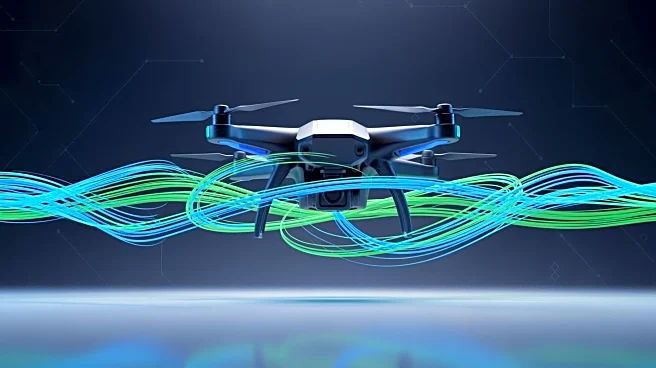What's Happening?
China Agricultural University has unveiled the Shennong Large Model 3.0, an advanced artificial intelligence model designed to transform agriculture and research worldwide. Launched at the 2025 World AgriFood Innovation Conference in Beijing, the model is China's most comprehensive AI system for agriculture, trained with the country's largest agricultural dataset. Covering 90 percent of agricultural disciplines and 80 percent of scenarios, the model aims to enhance crop breeding, planting, and livestock production. The Shennong AI Agent Platform, introduced alongside the model, offers practical applications for farmers, providing AI-powered guidance for crop management and pest control.
Why It's Important?
The introduction of the Shennong Large Model 3.0 represents a significant advancement in agricultural AI, offering specialized solutions for farming challenges. By leveraging extensive data and intelligent agents, the model can improve crop yield, resource management, and pest control, contributing to global food security. The model's capabilities in precision breeding and disease identification can accelerate scientific discovery and innovation in agriculture. As AI becomes more integrated into farming practices, it could lead to increased efficiency and sustainability, addressing issues such as climate change and resource scarcity. The model's global impact may also foster international collaboration in agricultural research and technology development.
What's Next?
The Shennong Large Model 3.0 is currently being tested in various regions in China, with plans for broader implementation. As the model gains traction, it may lead to increased adoption of AI technologies in agriculture worldwide. The development of additional intelligent agents and applications could further enhance the model's capabilities, offering tailored solutions for diverse agricultural needs. Collaboration with international research institutions and technology companies may expand the model's reach and influence. The ongoing evolution of agricultural AI could drive policy changes and investment in technology infrastructure, supporting the global transition to smart farming.
Beyond the Headlines
The launch of the Shennong Large Model 3.0 highlights the growing role of AI in addressing complex agricultural challenges. The model's focus on data-driven solutions may influence ethical considerations in farming, such as data privacy and the impact of automation on traditional practices. As AI becomes more prevalent, there may be discussions on balancing technological advancement with cultural and environmental preservation. The model's success could also inspire similar initiatives in other sectors, promoting innovation and sustainability across industries. The integration of AI in agriculture may lead to long-term shifts in food production and distribution, shaping the future of global food systems.










